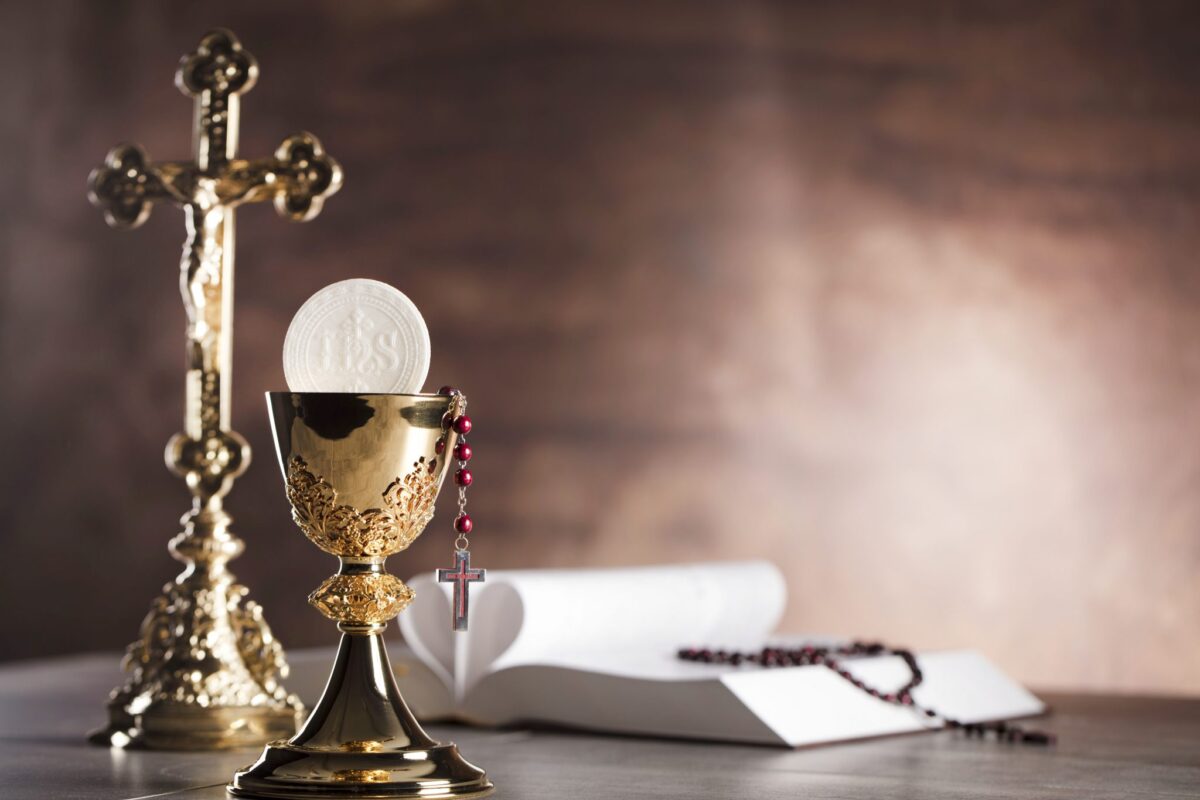Not as man sees does God see,
because man sees the appearance
but the LORD looks into the heart (1 Samuel 16:7).
My Sisters and Brothers in Christ,
“Don’t pick at that scab,” said my mother. She said this to keep the wound which the scab covered protected and sterile from the outside world. The scab helped the physical wound to heal. Sometimes, when we are not reconciled with God, we have a tendency to ‘pick at the scab’, to continue to open the wound and bring up something for which we had already offered forgiveness; but didn’t mean. Sometimes we repeat what others say and promote false teachings because we don’t prayerfully discern what we are hearing, in light of the teachings of the Church. Instead, we simply rely on a friend to preach and repeat those words.
All of these things – and I am sure, in your self-reflection, you can name others – draw us away from God. Instead of offering healing in this world, we continue to create discord. Instead of offering the unity of Christ, our discontent divides our families, friends, the workplace, and other encounters. Instead of extending a hand outstretched, we offer a fist to each other.
How do we draw near to God? As we pray and abstain during the Lenten season, we grow our interior spirituality and heal the divide between ourselves and God. We offer our heart to God. We can’t do this alone. We need the Sacraments for our spiritual nourishment that we have the strength and courage to abandon our sinfulness – to stop picking at the scab. Participation in the Sacrament of Penance helps us to bare our difficulties with God and to be forgiven as we come before the Lord heartbroken because we have allowed ourselves to be divided and wish to return to Him.
The Sacrament of Penance is one of healing. By our participation in the Sacrament, we are able to reconcile the distance between ourselves and God, to heal these wounds. We begin again with a renewed spirit to bear witness to Him in every way possible. When we partake in the Sacrament of Penance, we offer a sincere heart to try to learn what is pleasing to the Lord, to live as children of light. God looks into our heart and knows us.
The Sacrament of the Eucharist is the bond of love uniting us to Christ to carry out His mission of making known the presence of God in our midst, a God who continues to suffer in our sisters and brothers who are hungry, thirsty, sick and imprisoned. Eucharistic spiritualty must embrace the whole of our lives. Then, our Lenten almsgiving becomes natural to us because we become Christ’s leaven. As leaven, our transformation through, with and in Christ cannot start and end within the sanctuary of the physical church building. Instead we bring forth God’s love with all our heart, with all our soul, and with all our mind from the sanctuary of the church building into the sanctuary of God’s earth. From the rising sun to night’s rest, we live in Holy Communion: God’s will on earth as it is in heaven. God’s charity, His love flows from our heart to each other.
Pope Francis said, “In the Eucharist the Lord makes us walk on His road, that of service, of sharing, of giving; and if it is shared, that little we have, that little we are, becomes riches, for the power of God — which is the power of love — comes down into our poverty to transform it.”
My sisters and brothers in Christ, as we continue to draw nearer to God, let us be humbled that God knows our heart. May we offer it wholly to Him that we become holy.

